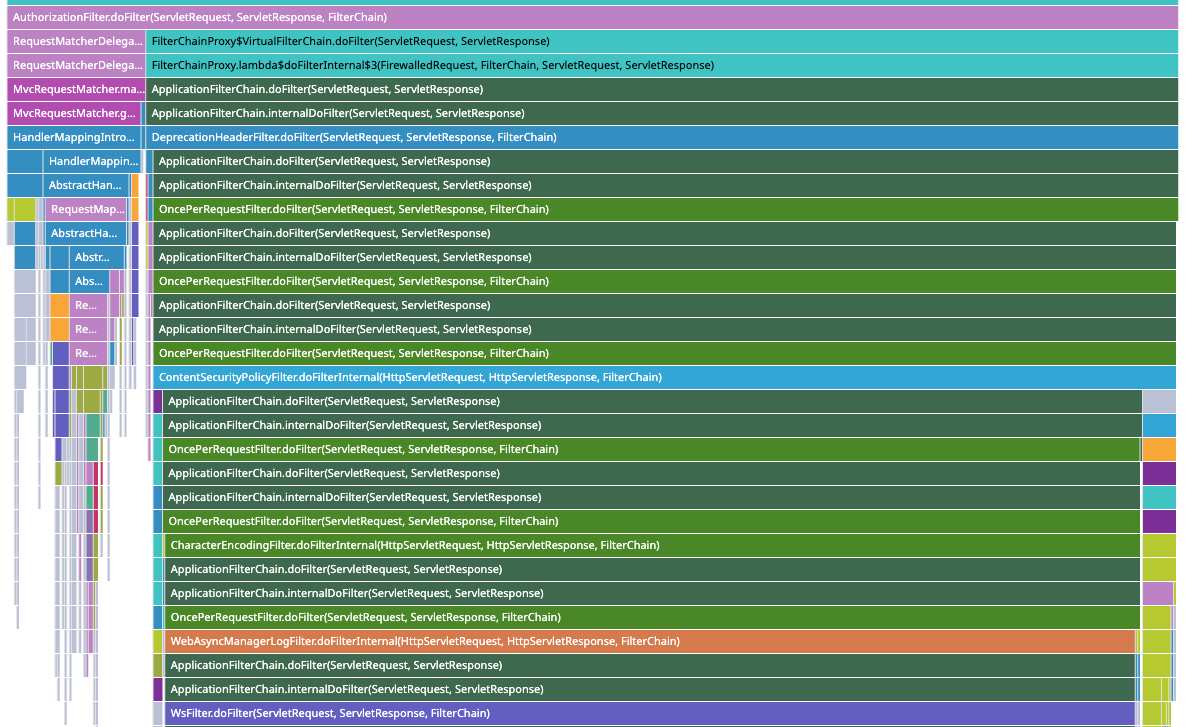Thanks for the report @alexey-anufriev , but there not so much actionable here, or at least conflicting messages.
You're first mentioning Tomcat's MessageBytes performance, which is out of our control.
You are also pointing to AntPathMatcher and PathPattern as areas of improvements. At this point, I'm not sure where the performance loss comes from and whether this is related to those classes. Did you compare the profiling output of 2.7.x and 3.1.x for your application? Did the ratio of the request matching phase grow in the overall execution with this upgrade?
Again, without much context, it's hard to understand why this part of the execution is slow. Request matching is of course an important part and we've optimized it with PathPatternParser and PathPattern. Depending on the request and if the path matches, some other conditions are processed (content negotiation, request parameters and others). It's not surprising some requests require less processing for the matching phase as optimizations happen along the way.
Discussing about performance is often tricky as it's easy to waste time setting up an imperfect benchmark test harness and draw the wrong conclusions. Comparing the same application with two different versions and pointing to the difference should be a good first step. Pointing to parts of the request processing and asking for performance improvements is not a good way to start; we've got multiple micro-benchmarks in the Framework codebase and spending time there is not always the most efficient way to optimize for your case.
How can this be improved? One thought is around some kind of caching for PathParser to avoid extra calculations while request matching.
The PathPatternParser is only called once during startup and create efficient PathPattern instances for matching against incoming requests. We optimized this quite a bit already in the past using a JMH benchmark. I don't understand the suggestion here. What should be cached?
Affects: 6.0.10 (Spring Boot 3.1.1)
Summary: After upgrade to Spring Boot 3.x application started to take more time for web requests processing.
Description: Initially, the application was based on Spring Boot 2.7.14 (Java 17). But since we upgraded to Spring Boot 3.1.1 we noticed performance degradation in web layer. Requests processing took extra time in comparison with Boot 2.x. Upgrade to Spring Boot 3.1.2 made it ever worse. Tomcat's
MessageBytesserialization started to perform even slower. So we reverted to Spring Boot 3.1.1.One more thing that was discovered in the profiler is slow performance of
AntMatcher. So we followed the recommendation from upgrade guide of Spring Boot 2.6 and witched toPathParser. As it turns out, this did not make much of an improvement (see details below).CPU
Here are some details captured using DataDog profiler.
Here is a request processing of the URL that has path variables:
And here is a request processing of the URL that has no path variables:
Memory
One more thing that was discovered is memory consumption, most of the allocations are happening here:
This is the size per minute
How can this be improved? One thought is around some kind of caching for
PathParserto avoid extra calculations while request matching.